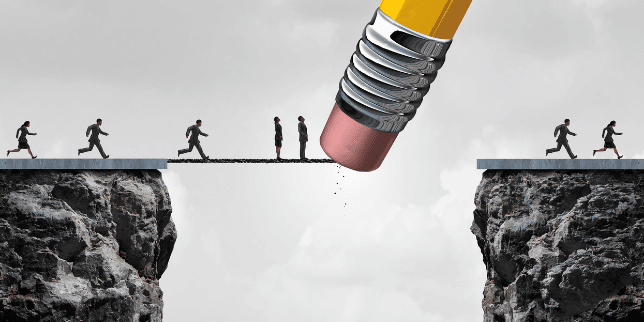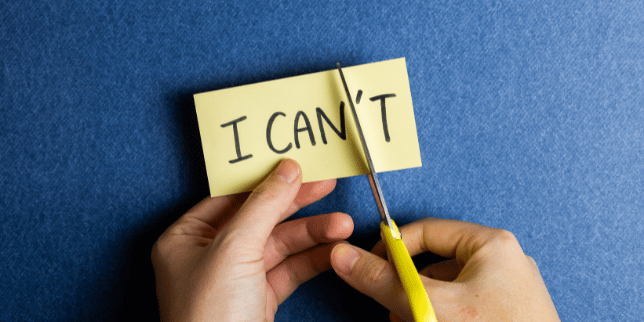Why Procrastination is Bad? 7 Negative Effects on Your Life
You may think that procrastination – the act of delaying or putting off tasks until the last minute or past their deadline – is not something serious, and it is not going to affect your life. Well, think again.
You see, everything you do in life is interconnected. There is an opportunity cost involved. When you choose to write an article, it means you use your time for content creation. And similarly, when you choose to watch Netflix, it means you use your time for leisure, and you don’t work on creating content.
And because there is an opportunity cost involved for everything we choose to do, the effect of procrastination becomes even more dramatic.
There is only so much time in a day, and what you choose to do will dictate what kind of life you get to live.
So, if you choose to procrastinate on your goals, or do things that will NOT move you forward in life, you will be stuck where you are. And as time passes, the negative impact on your life will be compounded.
Read: 10 Reasons Why People Procrastinate and How to Overcome It
Imagine you constantly procrastinate on your dreams to start a side business. 3 years later, you are still working in a company that you hate, you’re not making any progress in life, and you’re still broke. How does that make you feel?
This is why procrastination is bad. But how can procrastination negatively impact your life? Here are the 7 ways…
1. You are wasting your life

Bruce Lee has an amazing quote:
“If you love life, don’t waste time, for time is what life is made up of.”
That’s right, your life is made up of all the available time you have in your life. So, if you procrastinate and waste time, it means you are wasting your life.
You may think that it is okay to procrastinate a few minutes here and there, but as time goes by, you will notice that the situation is worse than you imagine.
The worst feeling is when you look back at your life and realize that you have wasted 5 or 10 years of your life and are still where you are. You’re not making any progress because of procrastination.
You can’t turn back time. And the only solution is prevention. Meaning, procrastinate less on what matters most. There’s no way we can totally get rid of procrastination, but somehow, we can manage it and procrastinate less.
The key is that when you choose to work on what truly matters to you in life and start to procrastinate less, you’ll see yourself making real progress, moving your life in the right direction, and slowly creating the life of your dreams.
Read: These Are the 10 Most Common Signs of Procrastination
2. Fail to reach your goals and dreams

This is common sense. You can never achieve your goals if all you do is constantly procrastinate on them.
Procrastination is one of the most common reasons people fail to reach their goals and make their dreams a reality.
Think about it, we all have goals…
- Everyone wants to have a fit and healthy body
- Every athlete wants to win the competition
- Every writer wants to publish a best-selling book
- Every blogger wants to build a successful blog
- Every YouTuber wants to grow a huge audience
But, the problem is that we all procrastinated on our goals. We know that to build a successful blog, we need to work on it. But we just don’t.
We know that if we want to have a fit and healthy body, we should exercise and go on a healthy diet, but we just don’t do it.
Why? Because we choose to procrastinate. Can you see how procrastination can destroy your goals and dreams now?
Read: How to Keep Your Momentum Going and Stick to Your Plan
3. Missed opportunities

The more progress you make, the more opportunities you will get. Here are 2 scenarios…
John and Laura have a dream to build a successful internet business. But John is a chronic procrastinator. He chose to procrastinate on his dream and watch Netflix instead. He used most of his time playing mobile games than working on his dream.
On the contrary, Laura is proactive. Even though she has no idea how to build an internet business, she constantly looked for ways how to do that. She asked around on online forums and groups. She stumbled upon great resources and guides that gave her an idea of where to start. She took action and made some progress. She got to know people who can help her. In short, Laura got more opportunities because she took massive action.
On the other hand, John failed to make much progress toward his dream. Because he was not proactive and was not constantly taking action, he missed a lot of opportunities.
The more you take action and the more progress you make, the more opportunities you will come across. However, if you choose to procrastinate, meaning, you’re not taking any action, you will miss a lot of opportunities.
Hence, if you think you lack opportunities to succeed in life, think again. Maybe you’re procrastinating and not taking enough action.
Read: 10 Tips How to Be More Proactive at Work and in Life
4. It can ruin your self-esteem and confidence

What you said you’re going to get done is a kind of promise you made to yourself. For instance, when you set a goal for yourself, internally, it is a form of promise you made to yourself. But what happens when you procrastinate and fail to achieve the goal?
Well, you are ruining your self-esteem and confidence. The more you break promises that you made to yourself, the lower your self-esteem will be. And you will lose confidence along the way.
Just like when someone made a commitment and promised you something but did not keep his words, how would you feel? Not good, right?
So, if you don’t like others to break their promises to you, then you should keep the promises you made to yourself too. The solution? Don’t procrastinate.
If you say you’re going to do something, do it. Don’t put it off and don’t delay. The more you keep your commitment, the higher your self-esteem is going to be. When you keep your commitment, your self-confidence will be high too.
Read: How to Increase Your Mental Strength and Become Tougher
5. It can negatively affect your career

Your work ethic will directly influence your results. Therefore, procrastination can negatively impact your career.
A classic example is when you are working in a team and your team member is delaying getting the work done. Or when your work requires collaboration from your colleagues, but your colleagues keep putting off the work and cause you to miss deadlines.
No matter whether you are a leader or are working on your own, procrastination can be harmful to your career.
6. It is bad for both your mental and physical health

Here’s according to research:
“New evidence suggests that procrastination doesn’t just hurt your work, it may also seriously damage your health.
A recent study indicates that chronic procrastination may make people more vulnerable to serious health conditions, like cardiovascular disease and hypertension.”
Procrastination and putting off important tasks cause additional stress on your body, which increases your vulnerability to illness. Studies have discovered chronic procrastination can cause health problems such as headaches, digestive issues, colds, flu, and insomnia.
So, if you want to take good care of your health, both mentally and physically, then don’t procrastinate.
7. It gives you a bad reputation

This is a straightforward negative effect of procrastination. If you procrastinate on a consistent basis, people give you a bad name.
For example, if your spouse asks you to do the dishes but you keep delaying it until the next morning or she has to do it herself, it may affect your relationship too. And this is just an example at home, what about at work?
If your manager or supervisor found that you are someone who procrastinates all the time, you will develop a bad reputation. And when there’s a promotion, guess what, they will never recommend you to the higher-ups.
Conclusion
Procrastination may not seem like a serious issue until it is compounded with time over the long term. Overall, procrastination can lead to stress, anxiety, broken dreams, failed goals, and low self-esteem.
The good news is that you can learn how to manage procrastination and overcome it. Think about it, if you procrastinate less, and become more hardworking and proactive, how will your life change?
If you want to learn how to stop procrastination once and for all, check out this web class right now.
